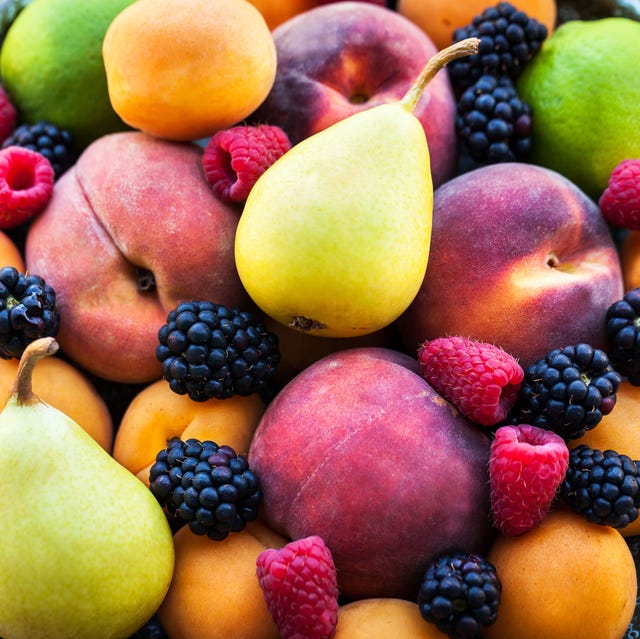
Ekaterina SmirnovaGetty Images
You already know eating certain foods can help you lose weight and lower your risk for diabetes and heart disease, but following a healthy diet can also keep your brain sharp. The foods you eat impact neurological health in many ways—including effects on insulin resistance, detoxification, and systemic inflammation—and provide critical vitamins, says Dale E. Bredesen, M.D., a neurologist and author of the book The End of Alzheimer’s Program, which has a whole section devoted to foods that help prevent cognitive decline. The trick is to find an eating style that optimizes your brainpower and is sustainable.
Scientists are working hard to try to solve this puzzle and discover how we can use nutrition to enhance our cognition. For instance, a 2015 study published in Alzheimer’s & Dementia found that the MIND diet can turn back the time on your cognitive age by 7 ½ years. Short for Mediterranean-DASH Intervention for Neurodegenerative Delay, the MIND diet combines the best of the Mediterranean and DASH diets, locking in the parts of each associated with dementia protection. “Good fats, such as olive oil, and vegetables (which include high folate and crucifers for detoxification) are brain-healthy components of the Mediterranean diet,” says Dr. Bredesen. “Meanwhile, vegetables and wild-caught fish that are low in mercury are both brain-healthy components of the DASH diet.
The team of researchers behind the 2015 study followed over 900 men and women ages 58 to 98 for an average of 4 1⁄2 years, assessing their diets with detailed food questionnaires and testing their cognitive function annually. They scored participants’ diets by how closely they matched the Mediterranean, DASH, or MIND eating patterns. The DASH diet reduced Alzheimer’s disease (AD) risk by 39%, the MIND diet by 53%, and the Mediterranean diet by 54%. But hold on—when participants followed the diets moderately well, rather than to the letter, only the MIND diet returned significant results. It reduced AD risk by 53% in those who followed it very closely, and by 35% in those who followed it reasonably well. What this means is that strict adherence to the DASH and Mediterranean diets may reduce AD risk—but so might moderate adherence to the MIND diet.
It’s worth noting that in the study, those with the highest MIND diet scores ate cheese and fried or fast food less than once a week, red meat less than four times a week, and desserts, pastries, or sweets less than five times a week. They also used less than a tablespoon of butter or margarine a day, and made olive oil their main source of fat. Translation: It’s not enough to eat the brain-friendly foods; to help lower your AD risk, it’s necessary to limit these less-healthy groups as well.
“Several trials are currently ongoing to test the impact of MIND diet on cognitive decline, and other structural changes in the brain after 3 years in 604 adults,” says Christy C. Tangney, Ph.D., C.N.S., F.A.C.N., professor in the Department of Clinical Nutrition at Rush University Medical Center in Chicago and co-author of the 2015 study. “We will learn much more from this trial about the role this diet plan plays in brain health. The MIND diet is also one of four lifestyle approaches being tested in another ongoing clinical trial known as US Pointer (US Study to Protect Brain Health Through Lifestyle intervention to Reduce Risk) that I’m working on.”
For people who really want to take things to the next level, Dr. Bredesen recommends following a diet that supports ketosis, which studies show can boost cognition. His very low-carbohydrate KetoFlex 12/3 diet is primarily plant-based and requires you to eat all your food within a 12-hour window every day and stop eating three hours before you go to bed. If that sounds like too much of a stretch for you, do whatever you can to limit your intake of processed foods, red meat, and added sugar while prioritizing brain-healthy foods. Pair the all-stars below with one veggie serving of your choice every day, and you’re on your way to better brainpower.
This content is created and maintained by a third party, and imported onto this page to help users provide their email addresses. You may be able to find more information about this and similar content at piano.io